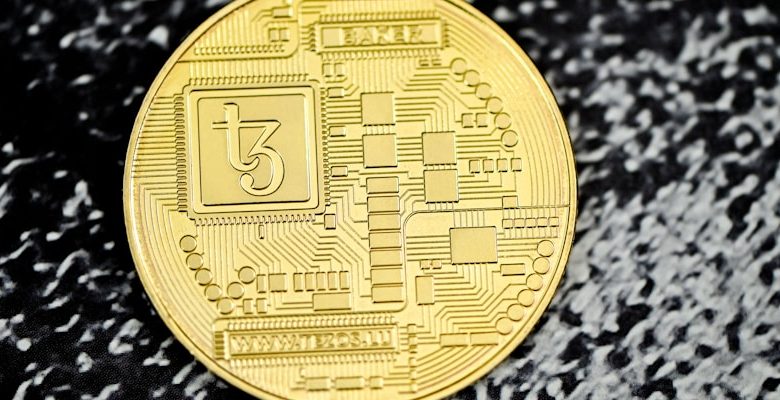How Blockchain Is Improving Digital Identity Solutions

- Understanding the Basics of Blockchain Technology
- Enhancing Security and Privacy in Digital Identity Management
- The Role of Decentralization in Identity Verification
- Applications of Blockchain in Identity Authentication
- Challenges and Opportunities in Implementing Blockchain for Digital Identity
- Future Trends in Blockchain-Based Digital Identity Solutions
Understanding the Basics of Blockchain Technology
Blockchain technology is a revolutionary concept that has gained significant attention in recent years. It is a decentralized, distributed ledger that securely records transactions across a network of computers. One of the key features of blockchain is its ability to provide transparency and security in digital transactions.
Blockchain technology works by creating a chain of blocks that contain transaction data. Each block is linked to the previous block, forming a chain of blocks. This creates a secure and tamper-proof record of transactions. Additionally, blockchain uses cryptography to secure the data stored in each block, making it nearly impossible for hackers to alter the information.
One of the main advantages of blockchain technology is its ability to improve digital identity solutions. By using blockchain for identity management, individuals can have more control over their personal information. This can help prevent identity theft and fraud, as individuals can choose who has access to their information and when.
Furthermore, blockchain technology can also streamline the verification process for identity documents. Instead of relying on centralized authorities to verify identities, blockchain allows for decentralized verification. This can reduce the time and cost associated with identity verification, making the process more efficient and secure.
Overall, understanding the basics of blockchain technology is essential for realizing its potential in improving digital identity solutions. By leveraging the unique features of blockchain, such as decentralization and cryptography, individuals and organizations can enhance the security and efficiency of identity management systems.
Enhancing Security and Privacy in Digital Identity Management
In the realm of digital identity management, blockchain technology plays a crucial role in enhancing security and privacy. By utilizing decentralized networks and cryptographic algorithms, blockchain offers a secure and tamper-proof system for managing digital identities.
One of the key advantages of blockchain in digital identity management is the elimination of a centralized authority. With traditional identity management systems, personal data is stored in a central database, making it vulnerable to hacks and breaches. Blockchain, on the other hand, distributes data across a network of nodes, ensuring that no single point of failure exists.
Moreover, blockchain technology enables users to have more control over their personal information. Through the use of private keys, individuals can securely access and share their data with third parties, without the need to disclose sensitive details. This not only enhances privacy but also reduces the risk of identity theft and fraud.
Another benefit of blockchain in digital identity management is the concept of self-sovereign identities. This means that individuals have full ownership and control over their digital identities, allowing them to manage and authenticate their information independently. By empowering users in this way, blockchain promotes trust and transparency in the digital world.
In conclusion, blockchain technology is revolutionizing digital identity solutions by providing a secure, private, and user-centric approach to identity management. As more industries and organizations adopt blockchain-based systems, we can expect to see significant improvements in security and privacy across the digital landscape.
The Role of Decentralization in Identity Verification
Decentralization plays a crucial role in improving digital identity solutions through blockchain technology. By distributing identity verification processes across a network of nodes rather than relying on a central authority, blockchain ensures greater security and transparency in verifying identities. This decentralized approach reduces the risk of a single point of failure or potential manipulation of identity data.
Blockchain’s decentralized nature also enhances privacy protection for individuals by allowing them to have greater control over their personal information. With blockchain, users can selectively disclose only the necessary details for identity verification without exposing their entire identity profile. This not only reduces the risk of identity theft but also preserves the confidentiality of sensitive information.
Moreover, decentralization in identity verification using blockchain enables greater interoperability between different systems and organizations. By standardizing identity verification protocols and allowing seamless data exchange among parties, blockchain facilitates more efficient and accurate identity verification processes. This interoperability ultimately leads to a more streamlined and user-friendly experience for individuals seeking to verify their identities online.
Applications of Blockchain in Identity Authentication
Blockchain technology has revolutionized digital identity solutions by providing a secure and decentralized way to authenticate users. By leveraging blockchain, organizations can improve identity verification processes, enhance security, and protect sensitive information from cyber threats. Below are some key applications of blockchain in identity authentication:
- Immutable Records: Blockchain creates a tamper-proof record of identity information, making it nearly impossible for hackers to alter or steal sensitive data.
- Decentralized Identity Management: With blockchain, users have more control over their identities and can securely manage their personal information without relying on centralized authorities.
- Self-Sovereign Identity: Blockchain enables the concept of self-sovereign identity, where individuals have full ownership and control over their digital identities, reducing the risk of identity theft.
- Smart Contracts: Smart contracts can automate identity verification processes, enabling seamless and secure interactions between parties without the need for intermediaries.
- Multi-Factor Authentication: Blockchain allows for the implementation of robust multi-factor authentication mechanisms, adding an extra layer of security to identity verification.
Overall, blockchain technology offers a promising solution to the challenges associated with traditional identity authentication methods. By leveraging the decentralized and secure nature of blockchain, organizations can enhance trust, privacy, and security in the digital identity landscape.
Challenges and Opportunities in Implementing Blockchain for Digital Identity
Implementing blockchain for digital identity presents both challenges and opportunities for organizations looking to enhance their security and efficiency. While blockchain technology offers a decentralized and secure way to manage digital identities, there are several obstacles that need to be overcome.
- One of the main challenges in implementing blockchain for digital identity is scalability. Blockchain networks can become slow and inefficient when faced with a large number of identity verification requests. Organizations need to find ways to scale their blockchain networks effectively to handle the increasing demand.
- Another challenge is privacy concerns. Storing personal information on a public blockchain can raise privacy issues, as the data is visible to anyone on the network. Organizations need to implement robust privacy measures to protect the sensitive information of their users.
- Interoperability is also a challenge when it comes to implementing blockchain for digital identity. Different blockchain networks may not be able to communicate with each other effectively, leading to fragmentation and inefficiencies. Organizations need to work towards creating standards for interoperability to ensure a seamless experience for users.
Despite these challenges, there are also significant opportunities in implementing blockchain for digital identity. Blockchain technology can provide a tamper-proof and transparent way to verify identities, reducing the risk of fraud and identity theft. By leveraging blockchain, organizations can streamline their identity verification processes and provide a more secure experience for their users.
Future Trends in Blockchain-Based Digital Identity Solutions
Blockchain technology is revolutionizing digital identity solutions by providing a secure and decentralized way to manage identity information. As this technology continues to evolve, there are several future trends that we can expect to see in blockchain-based digital identity solutions.
One trend is the use of self-sovereign identities, where individuals have full control over their own identity information. This means that users can choose what information to share and with whom, enhancing privacy and security. Another trend is the integration of biometric data into digital identities, which can provide an additional layer of security and make identity verification more robust.
Interoperability between different blockchain networks is also a key trend to watch for in the future. This will allow for seamless information sharing between different platforms, making it easier for users to verify their identities across various services. Additionally, the use of smart contracts in digital identity solutions is expected to increase, enabling automated verification processes and reducing the risk of fraud.
Overall, blockchain-based digital identity solutions are poised to continue improving in the future, offering increased security, privacy, and convenience for users. By staying informed about these emerging trends, businesses and individuals can take full advantage of the benefits that blockchain technology has to offer in the realm of digital identity.



